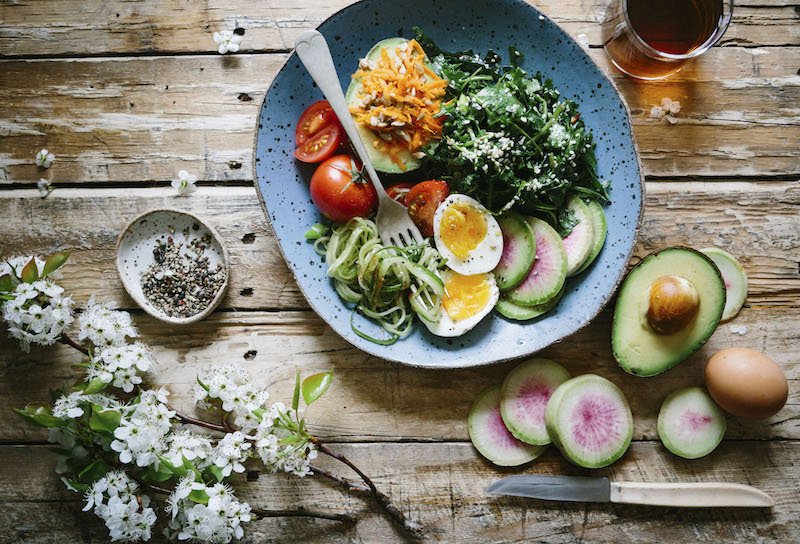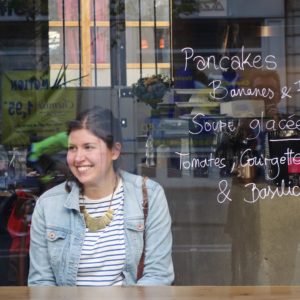
As you might know, I try to live more sustainably by changing my behaviour in small steps, bit by bit. I buy organic whenever I can, use public transportation or take the train instead of a plane. Still, on my journey to a more sustainable lifestyle, there’s one issue I’ve grappled with for a while: superfoods.
Whenever you look at the recipe of healthy chefs or bloggers, they contain “superfoods” – avocado, chia, acai, quinoa, coconut oil… . Please don’t get me wrong, I am not writing this article to judge others or point fingers. It’s just that lately, I couldn’t ignore the harmful effects of superfoods on our environment any longer. So I decided to stop eating them.
There’s actually a number of issues with superfoods. First of all, they aren’t grown locally and have to be shipped all over the world to get to our stores. There’s no quinoa farm or coconut trees anywhere close to where I live in Western Germany. Since I’ve made it my goal to buy mostly locally grown fruits and vegetables, I don’t think I should stop at the grains or cereal I consume.
Second, our increased desire for these kind of foods is heavily effecting the farmers and locals in the countries exporting them. One example: Quinoa has traditionally been the nutritious and cheap meal of South American farmers. Now that Western society is getting hungrier for it, there’s nothing left for the farmers. Instead, they export all of their quinoa and switch to eating processed food. It’s kind of surreal actually: In our quest for healthy living, we make others live less healthily.
On top of that, there’s other ecological problems with superfoods: For example, producing two avocados uses up to 1.000 litres of water. To get that into perspective: 1 kilo of tomatoes needs 180 litres. Since it’s way more lucrative to export avocados, people start cultivating mono cultures and water shortages occur. Both is very problematic, especially in poorer countries that grapple with drought anyway.
Well, this all sounds kind of depressing, doesn’t it? Still, there’s hope ;) Because all those very trendy food items may be healthy and contain lots of nutrients, but there’s a ton of great local superfoods as well. In light of the fact that most of the acclaimed benefits aren’t even proven, these are more than a great alternative. And what’s even better: Most local superfoods are a lot cheaper too! Here’s some examples:
+ Flax seeds instead of chia (flax actually have more health benefits which are even scientifically proven)
+ Blueberries instead of acai (only while they are in season)
+ Rape seed oil/olive oil instead of coconut oil (similar health benefits, no flying around the world)
+ Spelt instead of quinoa
+ Nuts instead of avocado (for healthy fat purposes)
Of course, there are a ton more local heroes. Kale, broccoli, apples, berries or beet – most of the greens you get locally have their own health benefits. If you try to eat mostly plants, grown locally and bought seasonally, you won’t need superfoods from the other end of the world.
I would really love to chat with you about this issue in the comments. Do you eat superfoods regularly? Do you know of other articles, studies on the topic? I’d love to know.
For me, I will probably still eat avocado now and again (it’s just too good!). I’ll sometimes try a cool-sounding dish with quinoa in it. I’m just trying to keep it to a minimum – and really enjoy eating it, if I do.

Hanna’s Places is a green lifestyle magazine written by Hanna Ulatowski. It’s all about slowing down in a fast-paced society and finding ways to live a more sustainable, simple lifestyle.